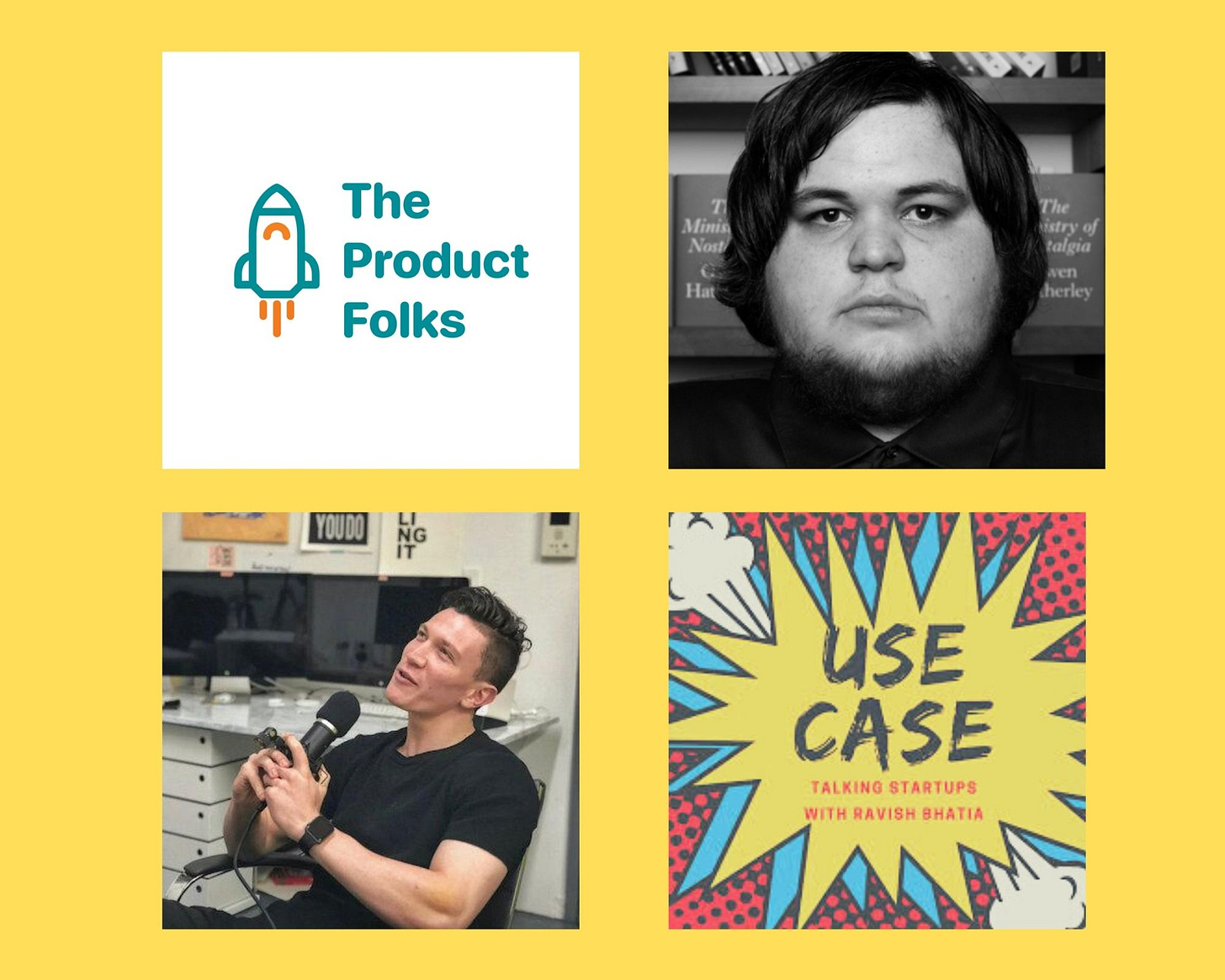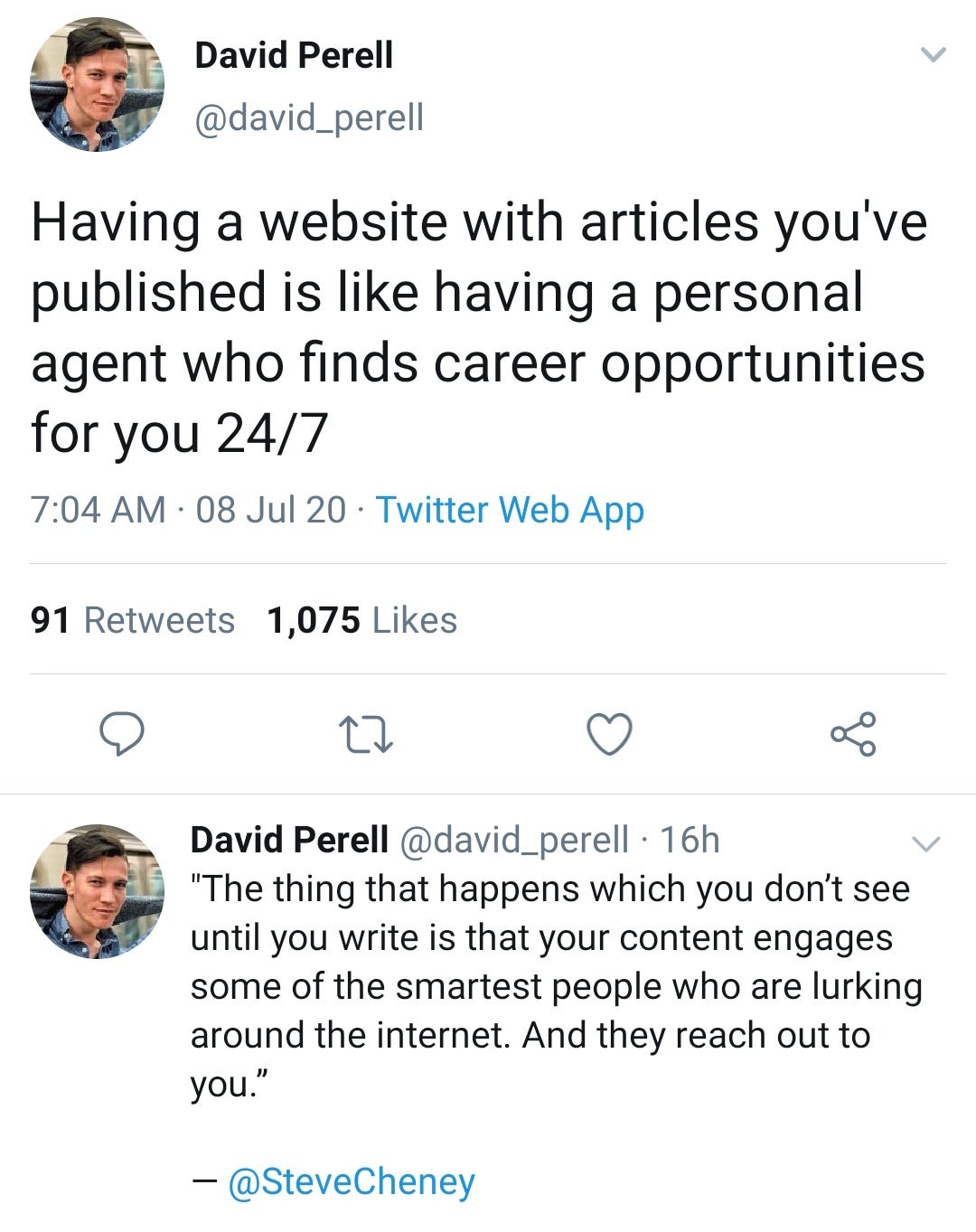 Nisha Ramchandani·Thursday, September 17 2020·Improve this Guide
Nisha Ramchandani·Thursday, September 17 2020·Improve this Guide
🎓 Internet Credentials vs CV
Are 'social scores' a replacement for skills
ℹ️ This article was originally posted 👉 https://zoomout.substack.com/p/are-internet-credentials-replacing
Recently, many echo chambers I am a part of have been debating the importance and value of a ‘personal brand’. Many believe that ‘social scores’ are a replacement for skills and there are many others who believe that nothing can replace hard work.
Well, the truth lies somewhere in between. I have always worked hard and have always procrastinated building a narrative around my work/ skills. While that has helped label me as a ‘hard worker’, many social privileges eluded me. That got me thinking deeper about this topic and my own identity.
Through research, several conversations and conviction, I have come to learn that (thankfully) we are moving towards a world that is going to value skills like it does gold. The deeper the knowledge about a certain subject, the better. Building a niche is highly undervalued. But, presentation is the icing on the cake!
To be ‘found’ you first work hard and then learn to build ‘signals of competence’ in areas that define you to stand out.
Let me not engage you in further banter, please read on…
Nisha
We humans are beings of expression and stories. Early sapiens created languages and words and bonded through storytelling. Overtime, as our world evolved it became important to express ourselves and present our skills to the world to earn a living and this led to the creation of the curriculum vitae a.k.a. CV. Did you know that Leonardo Da Vinci created the first professional CV? Take a look at his handwritten CV here.
In the 1950s the CV became formalised and was expected at job interviews until LinkedIn was launched in 2003 and gave way to a new style of presentation. Finally, in 2007, YouTube was launched and it made video CVs cool. Obviously innovation did not stop there, it had only just started.
People have realised that for too long a time (about 50 years), we have addressed the CV most robotically. When representing our professional worth, we have mostly adopted a placid approach that is far from creative. But, the internet has changed that. Terms like 'Personal Brand', 'Online Persona' and 'Internet Credentials' have slowly become mainstream and one cannot imagine a world without social profiles.
Social media platforms have granted us the canvas to sketch the narratives of our lives and be the hero of our own stories. In this piece, I explore if 'Internet Credentials' are replacing the CV and how prospective employees should present their skills to the world.
What are 'Internet Credentials'? A unique combination of skills, experience and personality that you want the world to see online. Created on any internet platform from Twitter to Instagram or even Tinder.
Why build Internet Credentials?
(L-R: The Product Folks, David Perell, Nathan Tankus, Use Case Podcast)
Simply because the future of work is about measuring output and acquiring relevant skill sets; not grades or work experience. Folks who have established identities online through their skills and side projects tend to agree. And, if you spend time online, you will observe this trend too.
For tech Twitter leeches, yourproductguy (@MotwaniSuhas) is a household name. He works full time for PepsiCo and moved to Europe last year. However, he is known online for building The Product Folks, a 15,000 strong community of product enthusiasts and more recently, GrabChai, a 1:1 connection platform for interesting folks online.
Says Motwani, "I love the energy, the potential and the opportunities that this space provides. It is a compounding game. Credentials or credibility is when folks see you hustling and eventually achieving what you said you would." He has close to 5000 followers on Twitter.
Another example is Ravish Bhatia. Bhatia is Host of Use Case podcast and editor of the Turnaround newsletter. In Bhatia's own words, he was grappling with multiple projects when an inclination towards podcasts and the VC/startup space overtook him. He started the podcast and in one of the episodes met his future boss - Deepak Abbott.
He now works as a Product Manager at Flat White Capital, a financial technology company. Bhatia says, "Twitter is particularly a place for woke communities and helps you network," he adds, "great roles are almost always never advertised and people look for candidates from within their own networks and the internet has helped with that."
Globally, one of the most popular names to have established an online identity and run a successful business (by writing, podcasting and running a writing school called, Write of Passage), David Perell is a great champion of building an online GPS for oneself (refer image). And, now with Substack making it simpler to gain an audience with online newsletters, folks like Nathan Tankus who writes on the pandemic-induced depression are key influencers who even policy-makers refer to.
"CVs do not efficiently communicate skill sets; for a designer their Behance profile would be better indicators or for a developer probably their GitHub profiles would," believes Ayush Jaiswal, Founder of Pesto Tech, a technology education company. On creating his own profile he says, "Instead of talking about a particular skill I am good at, I would share a piece of my work with a prospective employer." He believes that the Future of Work is to acquire multiple skills and showcase your worth through the work you do.
What are new-age employers looking for?
While this could vary across industries, the answer is 'artefacts' of your work that you can showcase. For example: Behance profiles for designers or GitHub for developers or real projects or apps for product managers.
"Relevant experience is the one thing we look for the most. At this juncture, I don't think it matters much from where a particular candidate has studied; what matters is the kind of expertise and hands-on knowledge they have," said Kartik Madaville, Founder and CEO of SpringWorks, an HR tech platform using blockchain and machine learning.
According to a spokesperson at LinkedIn, as virtual hiring practices pick up pace, internet profiles will be key to showcasing skill sets to prospective employers. These are tough times and job-seekers really have to stand out in order to land a job.
Many organisations still require a CV and where they do, they can be complemented with digital credentials. Prateek Shukla, Founder and CEO of Masai School has some tips:
Do your research - Before penning down your CV, it is important to research and learn about the target roles. List down all the necessary skills that the desired employers are looking for and try to highlight these skills in your CV.
Call attention to important achievements - Instead of listing your work duties in the Experience section, pick your top three or four big accomplishments in each of the positions you have performed. Wherever possible, include numbers that measure your success for that particular goal or achievement.
Decide whether you need a unique resume for different jobs - One should avoid putting everything on the CV. When you are applying for a position with a specific criteria, you might need another version of your existing CV to completely explain your skills. Decide on a case by case basis which resume to use and add the skills specific to the role you are applying for.
Consider an Online Supplement - It is always better to give some visual examples of the work you have done. Hence, including a link to your personal website/blog page with worthy achievements and insights can make you stand out of the crowd. Moreover, you should also include internet credentials that can demonstrate your practical knowledge required for the role.
What if you do not have an online persona?
What happens if you are really good at what you do and are not very active online? Sidu Ponnappa, SVP Engineering, GoJek, believes that that could lead to a discovery problem and potential employers may be unable to find you.
"My advice is to ask yourself which companies and roles do you want and try to understand the signals of competence in those areas. Generally they are signals that are hard-to-fake and can make you stand out." He believes that being active in important outcome-driven circles adds to the candidate's potential of 'being-found' which is equally important to the candidate and the potential employer.
But, is an online-identity enough?
"I think they (Internet Credentials) are an important addition but CVs are still important. Internet credentials are hard to verify and often easy to fudge. Also, I don't think they give a full sense of the arc of a person's career, their motivations and timelines," believes Manish Sabharwal, Chairman and co-founder of Teamlease Services, India's largest staffing and human capital firm.
Echoes Saravanan (Saran) Balasundaram, Founder and CEO of Han Digital, a talent consulting and fulfilment company, "any hiring manager requires a legitimate document to refer to when assessing a potential candidate. That document is non-negotiable for a small company or a large corporate."
He conducted a survey among his clients for this story and found that all of them required a CV to even authenticate an applicant's candidature and Internet Credentials are a good to have, not a must-have. However, they are now flexible with the format and are open to a one-page resume with basic details, but a resume is a must.
Saran concludes, if seeking a job is akin to running a marathon, one needs a resume to reach the finish line. It seems like while Internet Credentials are great for individual contributor roles/ or small teams where skill sets matter most, they are not yet a replacement to the humble CV which serves as an identity proof at large organisations.
Zoom-out: Tips for enhancing your digital credentials.
With virtual interviews on the rise, here is how you can stand out.
It is believed that the average recruiter or hiring manager will look at your resume for only 6 seconds before making a decision. Hence, you have to stand out.
LinkedIn seems to be the unanimous platform of choice of recruiters and hiring managers, compiled below are tips to make your LinkedIn profile work for you.
- Use the LinkedIn video introduction feature to put your best foot forward before the interview process even begins. Example: Sahil shared a LinkedIn post talking about how he's taking an unusual approach to look for an opportunity during this time. He asked his network to support him and help him reach the right recruiter for his next stint in marketing.
- Choose between a chronological, functional, combination, or targeted resume depending on what fits your work experience, educational background, and skill set. Use a resume template as a starting point that allows for personal customisation. Add your information to the resume template, and look at resume samples.
- LinkedIn recently launched opportunity.linkedin.com to help job-seekers connect to opportunities and get ready for virtual recruitment processes.
- The Open to Work feature on your LinkedIn profile can let recruiters know that you're open to new opportunities so that some of the jobs will come to you.
These tips have been compiled with inputs from LinkedIn.
Thank you for reading the entire post. I am sure you agree, disagree or are yet forming your opinion. Do post feedback/ questions on building internet credentials/ your own experiences on the RI slack community. We can all learn from each other.


